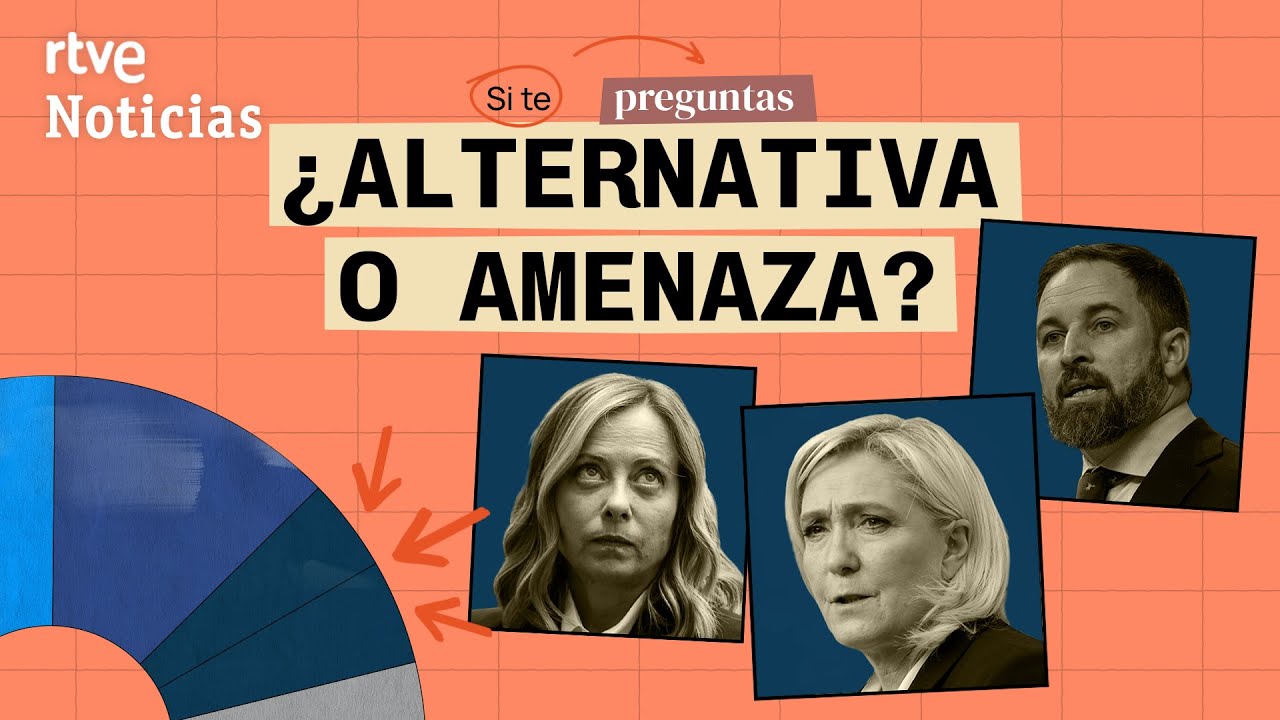The European Union: United in right-wing nationalism?
Summary
TLDRIn a discussion on 'Talking Europe,' the panel explores the rise of right-wing and nationalist parties across the EU, triggered by issues like immigration and dissatisfaction with traditional centrist parties. Key figures from Germany, Spain, Finland, and Austria discuss the close presidential vote in Austria, the influence of immigration policies, and the symbolic meaning of these political shifts. The debate highlights the polarization in Europe, the challenge of integrating refugees, and the public's desire for new leadership amid economic and social concerns.
Takeaways
- 🇦🇹 Norbert Hofer, an anti-EU, anti-immigration nationalist candidate, came very close to winning Austria's presidential election.
- 🌍 Across the EU, right-wing political groups are gaining ground, advocating for national interests over the EU.
- 🇦🇹 In Austria, the presidential vote showed significant support for the nationalist Freedom Party.
- 📊 The narrow election result in Austria reflects a polarized society on issues like immigration.
- 🇩🇪 In Germany, the ruling CDU party faces challenges from the right-wing AfD party, which has gained popularity.
- 🏛️ Austria's presidential election had symbolic meaning due to the limited executive powers of the president.
- 🇪🇸 Spain's traditional bipartisan political system has collapsed, leading to new political dynamics.
- 📉 The rise of right-wing parties in Europe is partly due to public dissatisfaction with traditional centrist parties.
- 🗳️ Nationalist parties often campaign on anti-immigration and anti-EU platforms, appealing to voter fears and frustrations.
- 💬 Discussions on the EU's handling of crises like immigration and economic issues are central to the rise of nationalist parties.
Q & A
What is the main topic of the discussion in the provided video script?
-The main topic is the rise of right-wing political groups in Europe and their increasing support, particularly focusing on the recent Austrian presidential election and its implications.
Who are the main guests featured in the discussion?
-The main guests are Ingerbord Grassley from Germany's ruling CDU party, Ernest Urtasun from Spain's Green Party, Juho Eerola from Finland's Finns Party, and Evelyn Regner from Austria's Socialist and Democrat party.
What is Ingerbord Grassley's perspective on the rise of right-wing parties in Germany?
-Ingerbord Grassley believes that the rise of right-wing parties like the Alternative for Germany (AfD) is partly due to the unclear line within the CDU and its sister party, the CSU in Bavaria. She emphasizes the importance of agreeing on a clear line regarding refugees.
What does Ernest Urtasun attribute to the collapse of the traditional political party system in Spain?
-Ernest Urtasun attributes the collapse to the social movement of protests that emerged from the economic crisis, which was progressive and demanded change from a progressive perspective. He also cites the historical reluctance of the Spanish population to back far-right parties due to the late end of far-right dictatorships in the 70s.
What reasons does Juho Eerola give for the increasing support of his party, the Finns Party?
-Juho Eerola states that the increasing support for the Finns Party is due to voters' concerns about the social and economic impact of massive immigration and the failure of European societies to integrate immigrants. He emphasizes that people have bad experiences and fears about the future.
How does Evelyn Regner explain the close results of the Austrian presidential election?
-Evelyn Regner explains that the close results show that while Austria is not far-right, many people are looking for someone who understands their concerns. She notes that Norbert Hofer, the far-right candidate, presented himself as young, energetic, and modest, which appealed to many voters.
What is a key message that Juho Eerola highlights about the outcome of the Austrian election?
-Juho Eerola highlights that the narrow win of the Austrian election indicates a significant polarization in Austria, similar to other Western European countries, particularly around the issue of immigration. He also notes the collapse of traditional mainstream parties in the first round of the election.
How do the guests view the connection between right-wing parties and anti-immigration sentiments?
-The guests generally agree that right-wing parties gain support by addressing voters' concerns about immigration. They point out that these parties often capitalize on fears about social and economic issues related to immigration.
What example does Ernest Urtasun give to demonstrate the voting behavior of far-right parties in the European Parliament?
-Ernest Urtasun gives the example of France's National Front abstaining from voting on a report tackling energy poverty and abstaining when creating a commission to tackle fiscal fraud. He argues that these actions show that far-right parties do not genuinely fight against the establishment.
What is the significance of the Austrian presidential election result according to the discussion?
-The Austrian presidential election result is significant because it highlights the deep polarization in the country and the rise of right-wing populism. It also underscores the broader trend across Europe where traditional centrist parties are losing ground to nationalist and anti-immigration groups.
Outlines

Esta sección está disponible solo para usuarios con suscripción. Por favor, mejora tu plan para acceder a esta parte.
Mejorar ahoraMindmap

Esta sección está disponible solo para usuarios con suscripción. Por favor, mejora tu plan para acceder a esta parte.
Mejorar ahoraKeywords

Esta sección está disponible solo para usuarios con suscripción. Por favor, mejora tu plan para acceder a esta parte.
Mejorar ahoraHighlights

Esta sección está disponible solo para usuarios con suscripción. Por favor, mejora tu plan para acceder a esta parte.
Mejorar ahoraTranscripts

Esta sección está disponible solo para usuarios con suscripción. Por favor, mejora tu plan para acceder a esta parte.
Mejorar ahoraVer Más Videos Relacionados

ULTRADERECHA EN EUROPA: ¿QUÉ SABEMOS de ELLA? ¿DÓNDE GOBIERNA? ¿ES UNA AMENAZA? | RTVE Noticias

Das Wahlprogramm der AfD erklärt | Bundestagswahl 2025

TRUMP WINS: The 6 Biggest Risks for Europe

Is Europe Turning Fascist?

أهم أخبار ألمانيا || تهديد بإلغاء نظام المساعدات الاجتماعية بشكله الحالي عند الوصول للحكم

How Progressive Denmark Became Europe's Anti-Immigration Champion
5.0 / 5 (0 votes)
